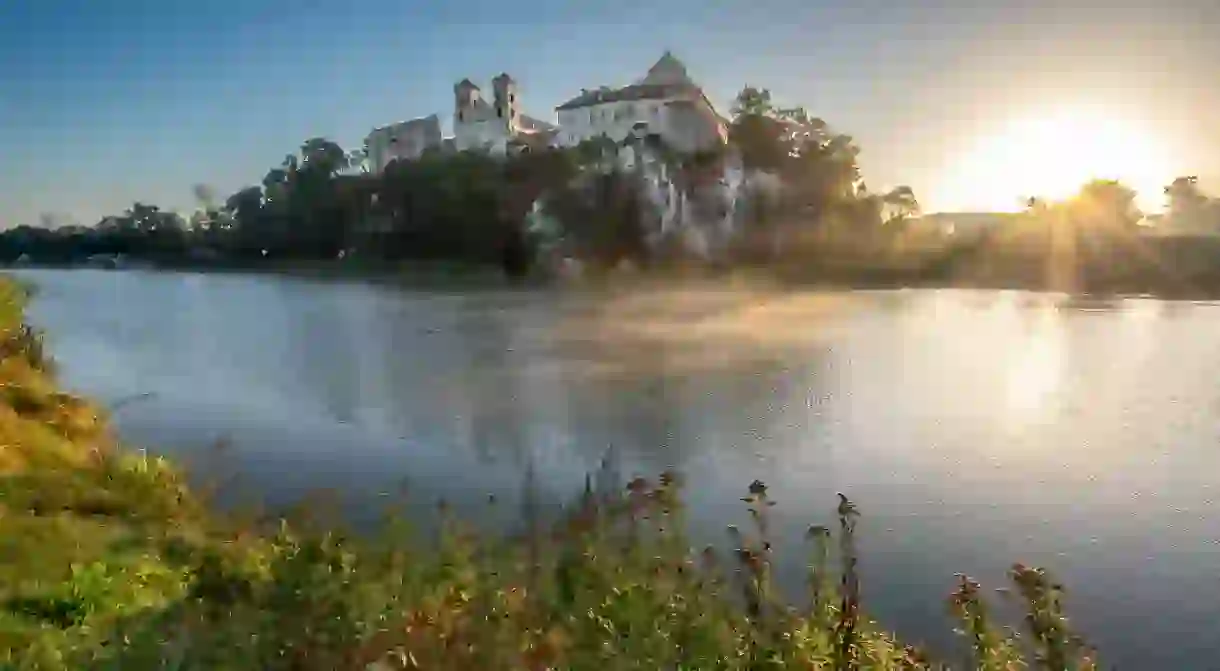The 10 Best Day Trips From Krakow

Once you’ve checked off all the medieval castles and Gothic spires of the Polish city of kings, perhaps it’s time to leave the cobbles of the Old Town behind. One thing’s for sure: With everything from rugged mountain trails to underground salt mines lurking close to Krakow, you’re sure to have plenty to choose from…
Walking the High Tatras
Hiking Trail, Natural Feature

The High Tatras rise like a wall of granite on the southern border of Poland. Protected by the boundaries of a national park, they are crisscrossed with loads of well maintained hiking paths. In the summer, visitors can scramble their way to the tops of the great Giewont peak (1,895 m/ 6217 ft up), or attempt to conquer the chiselled tip of Rysy, the highest mountain in Poland. There are easier walks too, through verdant fir-dressed valleys and timber-built mountain villages.
Auschwitz-Birkenau
Memorial, Museum

Ojców National Park
Forest, Park, Ruins

Wieliczka Salt Mines
Archaeological site, Cemetery, Church
Zakopane
Natural Feature

Kryspinów Lake
Natural Feature
When the humid summers of southern Poland are in full swing, there’s arguably nowhere better to go and cool off than the waters of Kryspinów Lake. An all-round, family-friendly attraction that’s less than 15 kilometres from the centre of Krakow itself, this large reservoir has everything from manicured beaches to playgrounds and bars. There’s loads of picnic spots, and even a range of heart-thumping watersports in the form of windsurfing and blob jumps.
Rafting on the Dunajec
Natural Feature
The Dunajec River can be found snaking through the midst of the rugged Pieniny Mountains, which erupt just to the south east of Krakow itself. Day trips to raft down the meanders of the waterway are a great way to get acquainted with the beautiful landscapes of Lesser Poland and the Slovak borderlands. As you drift past steep-sided valleys, cascading fir forests will drop from the summits, all before the carved trio of dolomite peaks that is the Trzy Korony reveals itself.
Babia Góra
Natural Feature

1,725 metre (5649 ft) high Babia Góra marks the spot where the rolling hills of Lesser Poland finally meet the border of Slovakia in the south. The peak itself is one of the most accessible from Krakow, and can be reached in less than 1.5 hours’ drive from the city centre. The climb from the Polish side of the peak is much steeper and challenging than that from the Slovak, south side, while the most difficult route of all (the so-called Academics’ Path) showcases all the fascinating animal and plant life that abounds here – perhaps you’ll even spot a wild Polish lynx or two!
Tarnów
Natural Feature

With just 115,000 inhabitants, Tarnów is much smaller than Krakow. But that doesn’t stop it from boasting a handsome Old Town area with winding cobbled streets and one large medieval square. Within, there’s a famous 14th-century Town Hall with a great tower and redbrick facades. There’s the famous Mikolajowski House, dating from the 1500s. There’s an old Yiddish cemetery, and some pretty Renaissance architecture to unravel.
Tyniec
Natural Feature

One of the best ways to reach beautiful Tyniec is to rent a bike from Krakow and cycle along the meanders of the Vistula River. Eventually, the monastery is bound to reveal itself, perched high and clung like a limpet to the top of a sheer-cut limestone cliff. It’s not only an awesome place to behold but also tells tales of the Benedictine monks that have lived here since the medieval ages. They were once known for their beer brewing, and today the place is still a working, lived-in abbey.













